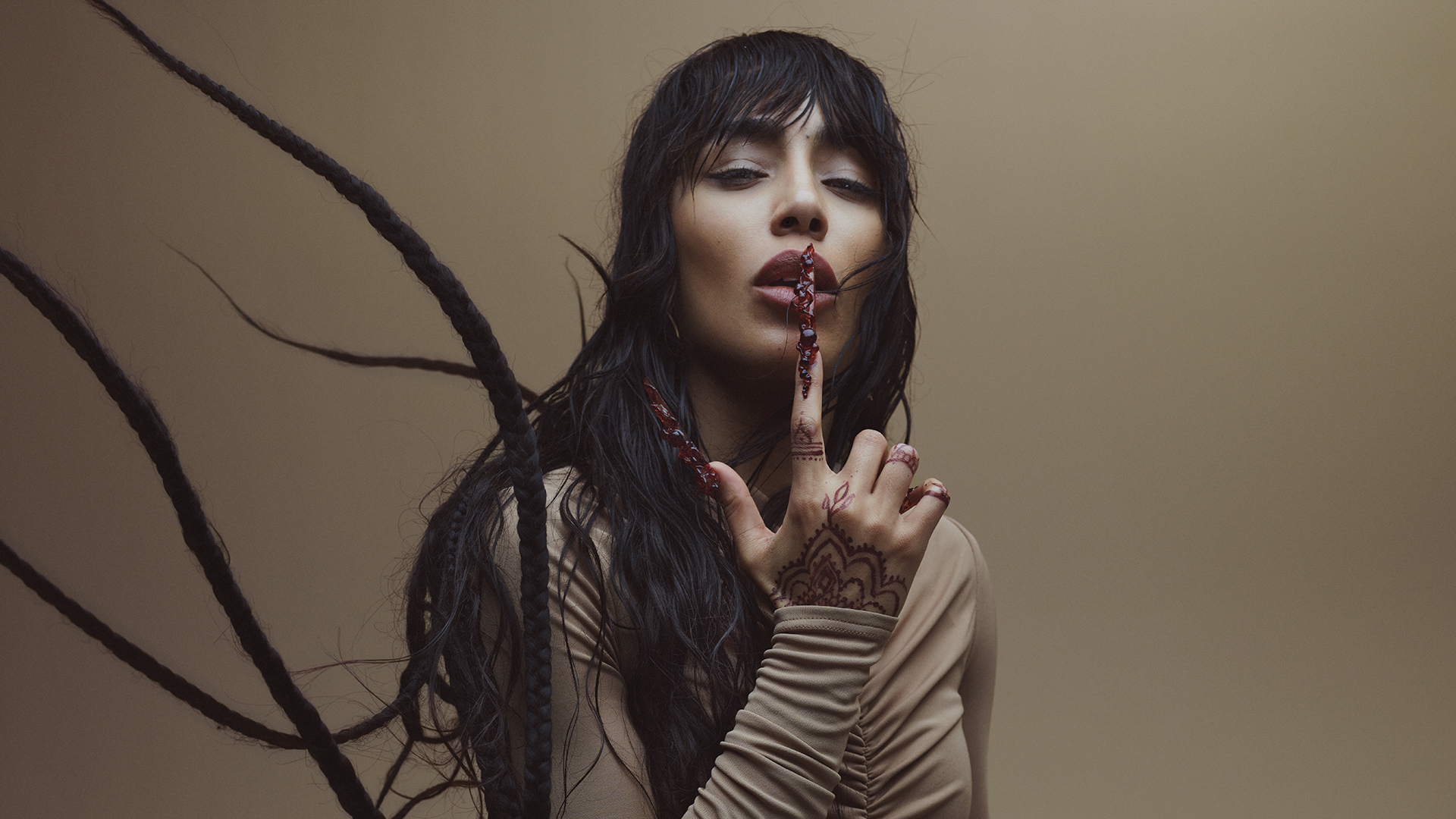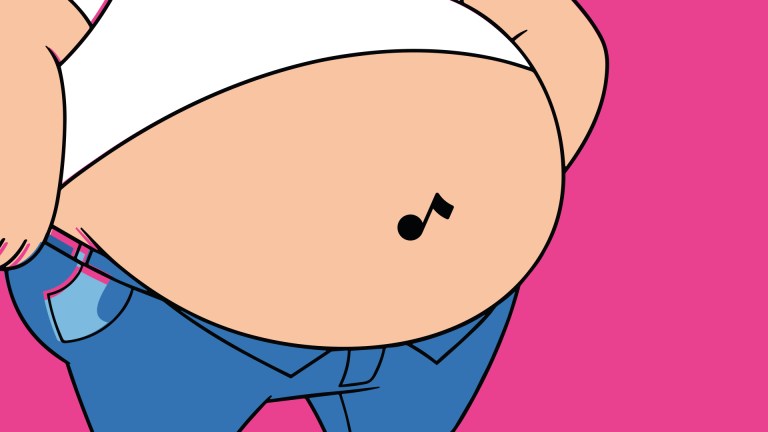Never let it be said that Loreen doesn’t suffer for her art. “I have scars all over my body,” the Swedish Eurovision superstar reveals, as we discuss the prickly impracticalities of donning massive, faintly terrifying claw-like fingernail extensions for her much-anticipated return to the contest. “When I need to go to the loo,” she laughs, “I’m like, ‘anybody wanna help me?’”
The staging for Loreen’s song Tattoo – which swept to victory in Sweden’s fiercely contested annual Eurovision qualifier competition Melodifestivalen – sees her dressed in a skin-tight tan body suit, sandwiched between two giant horizontal electronic screens, the lower of which is covered in real sand (which tends to get stuck to places she would rather not say). Huge fans blow a gale of dry ice, as Loreen rises up inside her claustrophobic lightbox to sing and dance in a dramatic desert storm of elemental special effects. “Sometimes the wind is so strong it’s like, waaah,” she screams, mimicking nearly getting blasted off stage.
All of this pain Loreen endures for you, dear viewers, in pursuit of bringing something fresh and exciting to a competition she previously won in 2012 with the exhilarating Euphoria.
Your support changes lives. Find out how you can help us help more people by signing up for a subscription
Born Lorine Zineb Nora Talhaoui in Stockholm to Moroccan Berber immigrant parents, Loreen grew up in a liberal Muslim household and first rose to prominence as a singer in 2004 as a contestant on Idol, Sweden’s version of Pop Idol. When she won Melodifestivalen in 2012, at the second time of entering, an estimated four million people tuned in for the final – almost half the Swedish population.
- ‘We’re about freedom’: Måneskin rock against homophobia, misogyny and war
- Eurovision: Seven weird moments that show why it’s the greatest song contest
- Eurovision 2023: Sam Ryder says ‘birthplace of pop’ Liverpool great pick to host
- The essential Eurovision 2023 Guide
“It forces you to do a really good job,” Loreen reflects. Particularly, she says, by comparison to other countries whose non-publicly selected Eurovision entrants can sometimes seem lacklustre and ill prepared. “If I’m an audience, I expect heart. I want to feel that the artist loves whatever he or she is doing.”









